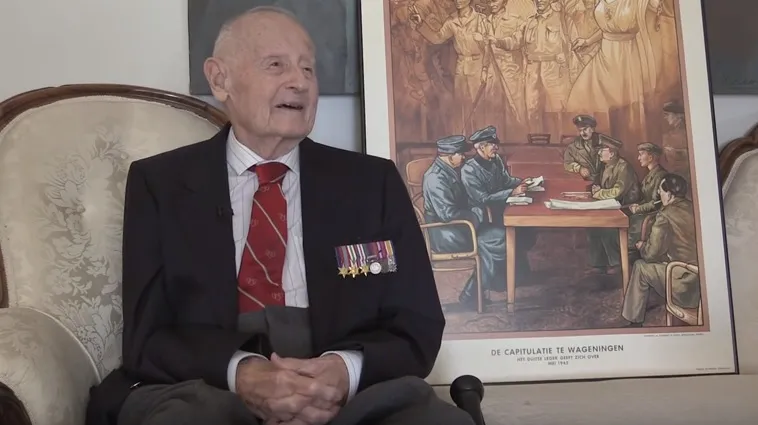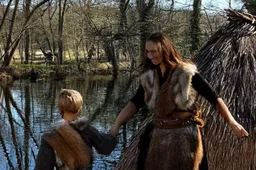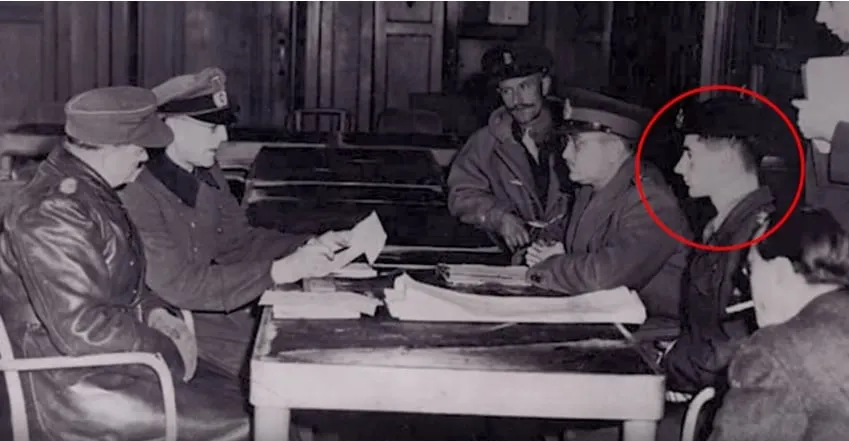George Molnar, last witness German capitulation 5th of May, passed away

George Molnar was present the 5th of May in 1945 when the Germans capitulated in hotel De Wereld in Wageningen, The Netherlands. The, at the time, 22 year old Canadian sat as interpreter at the table between General Foulkes and prince Bernhard of The Netherlands
For several years he has been the last living witness, he died at the age of 95, a Dutch newspaper wrote
Just that day
George has only been in Wageningen that day, he never went back. General Foulkes took him to the table of negotiating and he was the youngest Canadian officer in WW2
Born in Hungary, George learned German, French, English and Italian from his mother. Later he learned Russian too from a immigrant.
In the late '30 he left to Canada to follow his father who was a pastor en was asked to preach in Calgary.
Active duty
Enlisting for active duty at age 19 in May 1942, George went through basic training where he learned how to drive a tank in Dundurn. He was selected for officer training and afterwards he was shipped to Aldershot in England. His languages skills did not went unnoticed and he was transferred to the Intelligence Corps.
In The Netherlands George was based at the First Canadian Division headquarters near Apeldoorn. One of his responsibilities was interrogating prisoners of war. With his knowledge of the German language he was ideal for the job.
On the night before the 5th of May, mayor-general Harry Wickwire Foster, gave him the order to report for duty the next day at 8 a.m. And even they drove through enemy lines, Foster did not tell what the purpose of this trip was.
“All he said was that he was going to let me out near the location of a meeting,” Molnar recalls in the Edmonton Journal in 2015. “I wasn’t well informed about what was going to happen.”
Hotel De Wereld
In Wageningen he was directed to the hotel. At 11 a.m. the first meeting started. George sat between general Foulkes and prince of The Netherlands, Bernhard, in front of him general Blaskowitz.
Foulkes started dictating the terms of surrender, pausing in between so George could interpreter the terms in German.
Blaskowitz asked some questions but Foulkes was very clear: the terms were not open for discussion.
Excited
On the other side of George, prince Bernhard could hardly contain his excitement. During a break the prince spoke to George, congratulating him and he asked where he learned to speak German so well.
“He was friendly and courteous to me,” Molnar recalls. “He told me to consider the significance of the moment.”
“I was kept busy that day and didn’t really have much opportunity to reflect on the importance at the time,” Molnar says, a half-dozen war medals pinned above his breast pocket. “But the distinction of having been among the persons representing Canada and the Allied forces made it exciting."
“It certainly was the experience of a lifetime.”
(read more in the Canadian Edmonton Journal)
Meest Gelezen

Column: Vijf procent aan kaas in plaats van Defensie!

Twee mooie vaarten met safarischip De Blauwe Bever vanaf Oosterbeek

Kamer neemt woningwet aan die ook voorrang statushouders verbiedt

Ook in Oosterbeek oefenen met het patiëntenportaal van je huisarts of ziekenhuis

